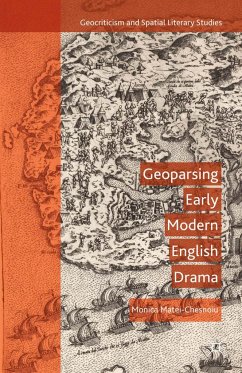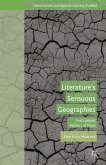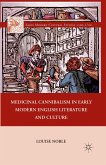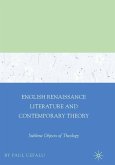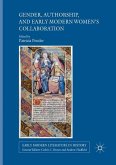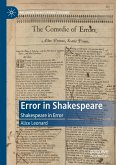Geo-spatial identity and early Modern European drama come together in this study of how cultural or political attachments are actively mediated through space. Matei-Chesnoiu traces the modulated representations of rivers, seas, mountains, and islands in sixteenth-century plays by Shakespeare, Jasper Fisher, Thomas May, and others.
"This is a cosmopolitan study, drawing on multiple disciplines and languages with impressive erudition. Because of her wide-ranging sources, Matei-Chesnoiu is often required to introduce and contextualize unfamiliar materials, which makes this monograph a useful overview of cognate approaches with the potential to illuminate new facets of early modern spatiality." (Kathryn Prince, Shakespeare Bulletin, Vol. 33, 2015)
"Space may have surpassed time as the dominant category on our minds, so it is most fitting that Monica Matei-Chesnoiu's book should make us aware of the history and historicity of spaces and places. Theatre-going will never be the same again for readers of this comprehensive and admirably rich study of geographical space in early modern drama, since they will ineluctably be drawn to reflections on rivers that flow over thestage, encircling and hugging the cities evoked in the dramatic dialog." - Werner Brönnimann, University of St. Gallen and University of Basel, Switzerland
"Monica Matei-Chesnoiu's broad and bold argument about the possibilities of the polyvocality and the polychronicity of English Renaissance theater as a site of radical possibility is a provocative extension to much recent scholarship on conceptualizing theatrical space. It deserves a wide readership of those interested in the impact of culture on the imagination." - Arthur F. Kinney, Thomas W. Copeland Professor of Literary History, University of Massachusetts Amherst, USA
"Space may have surpassed time as the dominant category on our minds, so it is most fitting that Monica Matei-Chesnoiu's book should make us aware of the history and historicity of spaces and places. Theatre-going will never be the same again for readers of this comprehensive and admirably rich study of geographical space in early modern drama, since they will ineluctably be drawn to reflections on rivers that flow over thestage, encircling and hugging the cities evoked in the dramatic dialog." - Werner Brönnimann, University of St. Gallen and University of Basel, Switzerland
"Monica Matei-Chesnoiu's broad and bold argument about the possibilities of the polyvocality and the polychronicity of English Renaissance theater as a site of radical possibility is a provocative extension to much recent scholarship on conceptualizing theatrical space. It deserves a wide readership of those interested in the impact of culture on the imagination." - Arthur F. Kinney, Thomas W. Copeland Professor of Literary History, University of Massachusetts Amherst, USA

